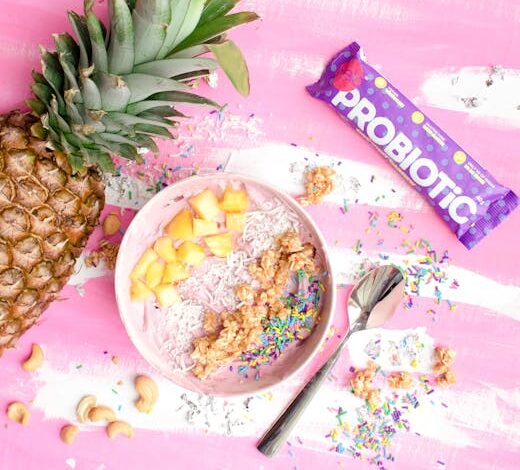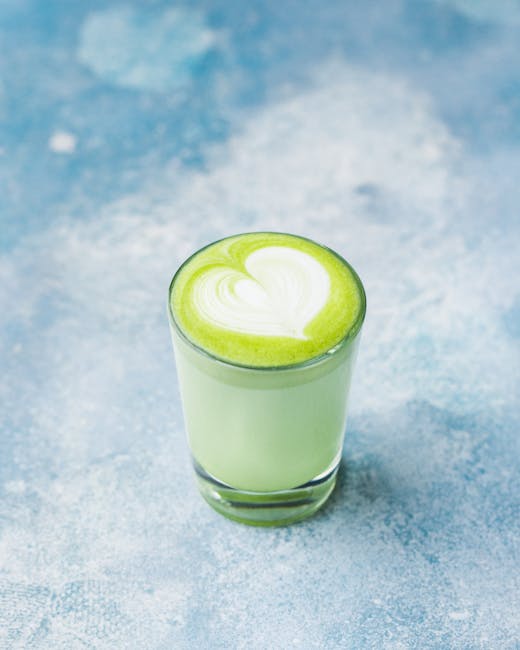Best Dairy Free Probiotic

So, you’re looking for the best dairy-free probiotic? You’re not alone! More and more people are ditching dairy, whether it’s due to lactose intolerance, allergies, or simply a preference. But that doesn’t mean you have to miss out on the gut-boosting benefits of probiotics. As a wellness blogger who’s been exploring the world of gut health for years, I’m here to guide you through the best dairy-free options available.

Why Choose Dairy-Free Probiotics?
First things first, let’s quickly recap why probiotics are so important. Probiotics are live microorganisms, often called “good bacteria,” that help maintain a healthy balance in your gut. They can improve digestion, boost your immune system, and even affect your mood! However, many traditional probiotic supplements are cultured in dairy, making them unsuitable for those avoiding milk products. Fortunately, the market is now flooded with fantastic dairy-free alternatives.
What to Look For in a Dairy-Free Probiotic
Finding the right probiotic can feel overwhelming, but here are some key factors to consider:
Strain Diversity: A good probiotic should contain a variety of different strains of bacteria. Different strains offer different benefits, so a diverse blend is more likely to provide comprehensive support for your gut health. Look for strains like Lactobacillus acidophilus, Bifidobacterium lactis, and Lactobacillus rhamnosus, which are well-researched and known for their beneficial effects.
CFU Count: CFU stands for Colony Forming Units, and it indicates the number of live and active microorganisms in each dose. A higher CFU count isn’t always better, but generally, you want a probiotic with at least a few billion CFUs. However, quality strains are more important than quantity. Don’t just pick the one with the highest number! Consider your needs, as someone with Irritable Bowel Syndrome (IBS) may require a higher CFU count than someone taking probiotics for general health.
Third-Party Testing: Look for probiotics that have been third-party tested for purity and potency. This ensures that the product contains what it claims and is free from harmful contaminants. Certifications from organizations like USP, NSF International, or ConsumerLab.com are good indicators of quality.
Delivery Method: Some probiotics are available in capsules, while others come in powders or chewables. Consider your personal preference and whether you have any difficulty swallowing pills. Also, look for capsules that are designed to be enteric-coated or delayed-release. This helps protect the probiotics from stomach acid and ensures they reach your intestines, where they can be most effective.
Added Ingredients: Be mindful of any added ingredients, such as prebiotics, which can help nourish the probiotics. However, some people may be sensitive to certain prebiotics, so start with a low dose and gradually increase as tolerated. Also, check for potential allergens or artificial sweeteners.
My Top Dairy-Free Probiotic Recommendations
Based on my research and experience, here are some of the best dairy-free probiotic options available:
Seed Synbiotic: Seed is a popular option that combines probiotics and prebiotics into a single capsule. Their capsules are designed with a “capsule-in-capsule” technology to protect the probiotics from stomach acid. They emphasize strains backed by scientific research and are committed to sustainability.
Garden of Life Dr. Formulated Probiotics: This brand offers a wide range of dairy-free probiotics formulated for specific needs, such as digestive health, immune support, and women’s health. Their products are certified organic and non-GMO, and they contain a blend of diverse probiotic strains.
MaryRuth Organics Probiotic: This liquid probiotic is great for those who have trouble swallowing pills. It’s USDA certified organic, vegan, and dairy-free. It contains a blend of beneficial bacteria to support gut health and overall wellness. It has a neutral taste and can be easily added to water or juice.
Ritual Synbiotic+: Ritual is known for its commitment to transparency and high-quality ingredients. Their Synbiotic+ combines probiotics, prebiotics, and a postbiotic in a single capsule. It’s designed to support gut health, immune function, and overall well-being.
Hyperbiotics PRO-15: Hyperbiotics uses a patented BIO-tract technology to protect the probiotics from stomach acid and ensure they reach the intestines alive. Their PRO-15 formula contains 15 different strains of beneficial bacteria and is designed to support digestive and immune health.
Tips for Taking Dairy-Free Probiotics
To get the most out of your dairy-free probiotic, here are a few tips:
- Start Slowly: When starting a new probiotic, begin with a low dose and gradually increase it over time. This can help minimize any potential side effects, such as gas or bloating.
- Take at the Right Time: Some probiotics are best taken on an empty stomach, while others are better taken with food. Follow the manufacturer’s instructions for optimal absorption. Generally, taking probiotics before bed or first thing in the morning is a good strategy.
- Store Properly: Probiotics are sensitive to heat and moisture, so store them in a cool, dry place. Some probiotics may require refrigeration, so check the label for storage instructions.
- Be Consistent: Probiotics work best when taken consistently over time. Aim to take your probiotic daily for at least a few weeks to see noticeable benefits.
Potential Side Effects and Concerns
While probiotics are generally safe for most people, some individuals may experience mild side effects, such as gas, bloating, or changes in bowel habits. These side effects are usually temporary and subside within a few days. If you experience any severe or persistent side effects, discontinue use and consult with your doctor.
It’s also important to note that probiotics may not be suitable for everyone. Individuals with weakened immune systems or certain medical conditions should talk to their doctor before taking probiotics. Additionally, probiotics may interact with certain medications, so it’s always best to discuss any potential interactions with your healthcare provider.
Dietary Strategies to Enhance Probiotic Benefits
Probiotics work best when combined with a healthy diet. Focus on incorporating plenty of fiber-rich foods, such as fruits, vegetables, and whole grains, to nourish the beneficial bacteria in your gut. Fermented foods, like kimchi and sauerkraut (make sure they are dairy-free!), can also provide a natural source of probiotics. Limit your intake of processed foods, sugar, and unhealthy fats, as these can disrupt the balance of bacteria in your gut.
Beyond Supplements: Dairy-Free Fermented Foods
While probiotic supplements are a convenient way to boost your gut health, don’t forget about the power of fermented foods. Many delicious and nutritious fermented foods are naturally dairy-free. Sauerkraut, kimchi (check the ingredients to be sure!), kombucha, and tempeh are great options to consider incorporating into your diet. Be sure to introduce these foods gradually to avoid digestive discomfort.
Frequently Asked Questions
Are dairy-free probiotics as effective as dairy-based probiotics?
Yes! The effectiveness of a probiotic depends on the specific strains of bacteria and their ability to survive the journey through your digestive system, not whether they were cultured in dairy. Dairy is simply a common medium used to grow the bacteria. Dairy-free probiotics can be just as effective, as long as they contain the right strains and are properly formulated.
Can I take dairy-free probiotics if I’m not lactose intolerant?
Absolutely! Even if you can tolerate dairy, you can still benefit from taking dairy-free probiotics. They offer the same gut health benefits as dairy-based probiotics and may be a good option if you’re looking to reduce your dairy consumption or simply prefer a vegan option.
How long does it take to see results from taking dairy-free probiotics?
The time it takes to see results from taking probiotics can vary depending on the individual and the specific product. Some people may notice improvements in their digestion within a few days, while others may take several weeks to experience noticeable benefits. Consistency is key, so be patient and continue taking your probiotic daily for at least a few weeks.
Can I take dairy-free probiotics with other supplements?
In general, probiotics are safe to take with other supplements. However, it’s always a good idea to talk to your doctor or pharmacist before starting any new supplement regimen, especially if you’re taking medications. They can help you identify any potential interactions or contraindications.
Are all vegan probiotics dairy-free?
While most vegan probiotics are also dairy-free, it’s always important to double-check the label to be sure. Look for certifications like “vegan” or “dairy-free” and carefully review the ingredient list to ensure that the product doesn’t contain any hidden dairy ingredients.
Choosing the best dairy-free probiotic is a personal journey. It’s about understanding your body’s needs and finding a product that aligns with your dietary preferences and health goals. Armed with this information, you’re well-equipped to make an informed decision and start reaping the benefits of a healthy, balanced gut. Remember to consult with your healthcare provider if you have any concerns or questions. Here’s to a happy and healthy gut!



